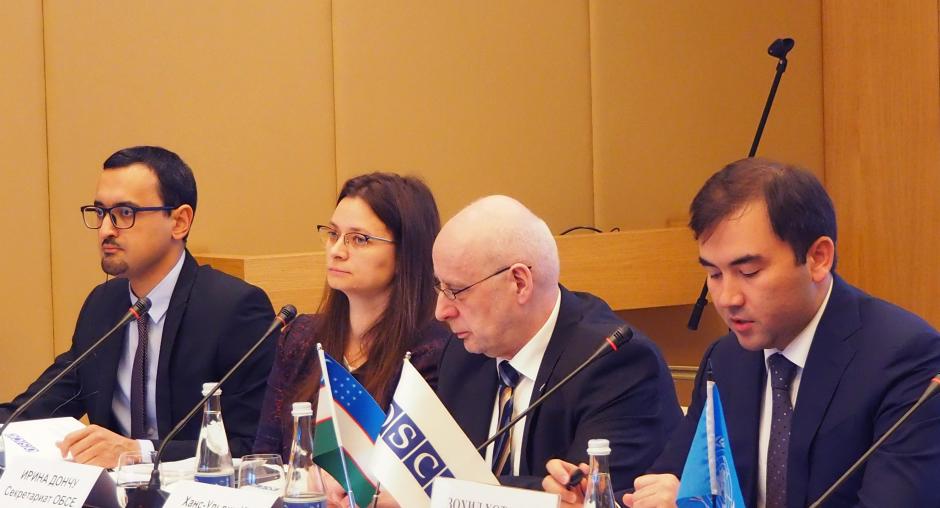OSCE and UN Office on Drugs and Crime deliver training course on countering terrorist financing in Uzbekistan

A three-day training course aimed at further strengthening the capacity of Uzbekistan to counter terrorist financing concluded in Tashkent on 25 October 2019.
The training seminar was delivered to twenty-five Uzbek experts and practitioners from the General Prosecutor’s Office, the Academy of the General Prosecutors Office, the Department at the General Prosecutors Office, the Ministry of Internal Affairs and the State Security Service of the Republic of Uzbekistan.
The course was organized by the OSCE’s Transnational Threats Department, in co-operation with the OSCE Project Co-ordinator in Uzbekistan, the UN Office on Drugs and Crime (UNODC)’s Global Programme against Money Laundering and its Regional Office for Central Asia. The training was delivered by international experts together with four local government officials who were trained in a train-the-trainers course in Vienna organized by the OSCE and the UNODC.
The aim of the training course was to assist Uzbekistan in implementing international standards, in particular UN Security Council Resolutions, the Financial Action Task Force on Money Laundering (FATF)’s recommendations, OSCE and UN commitments.
Based on country- and region-specific scenarios, the training course included sessions on national, regional and transnational threats, sources of information and money flows, including hawala (a traditional system of transferring money). More than half of the course was devoted to practical exercises highlighting specific instruments and techniques that play an important role in countering the financing of terrorism. The course emphasized the key role of inter-agency co-operation in countering terrorist financing.
The course was organized with the financial support of Germany as part of a comprehensive multiannual capacity-building programme to assist national efforts to counter terrorist financing in Central Asia.
